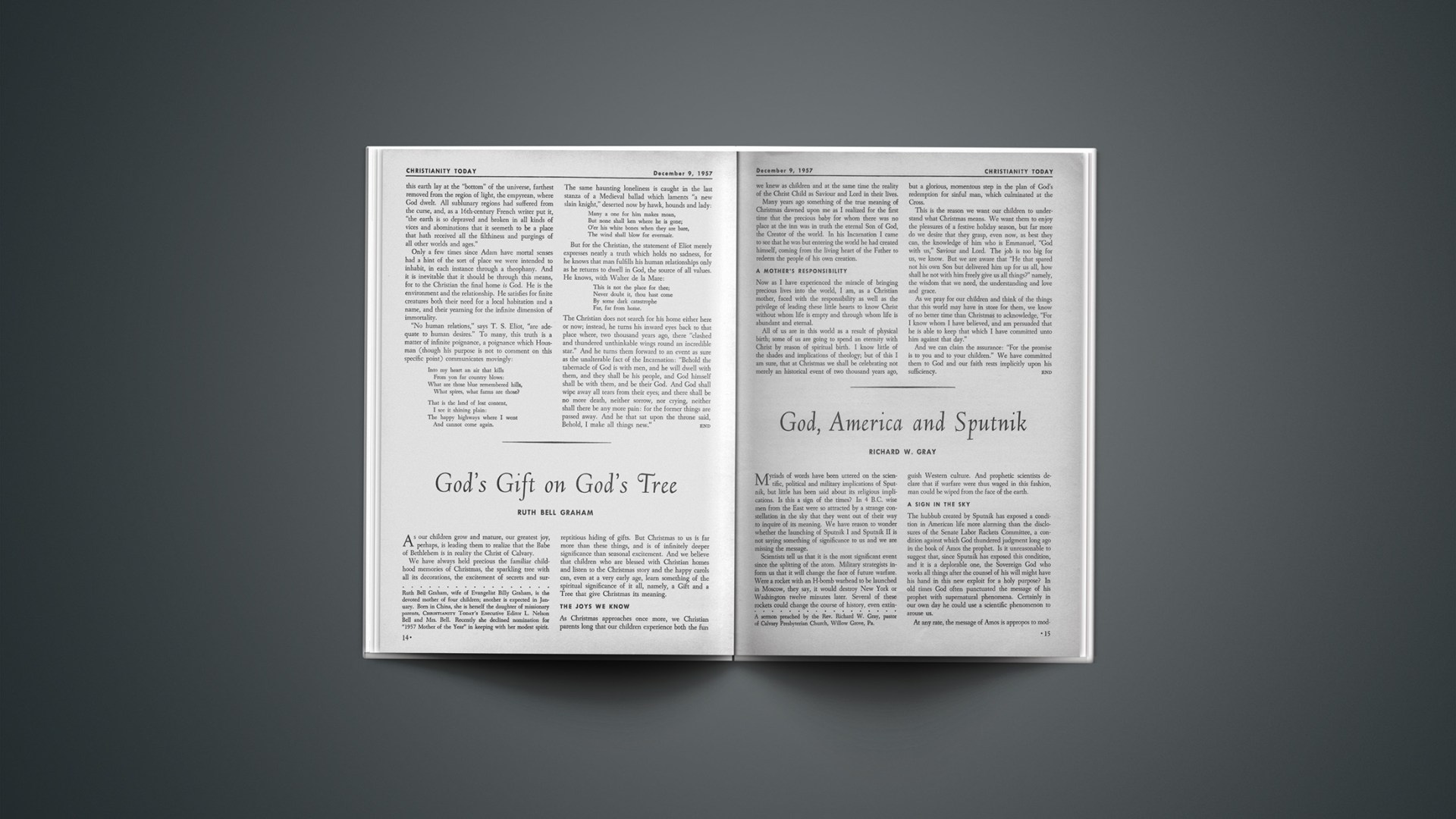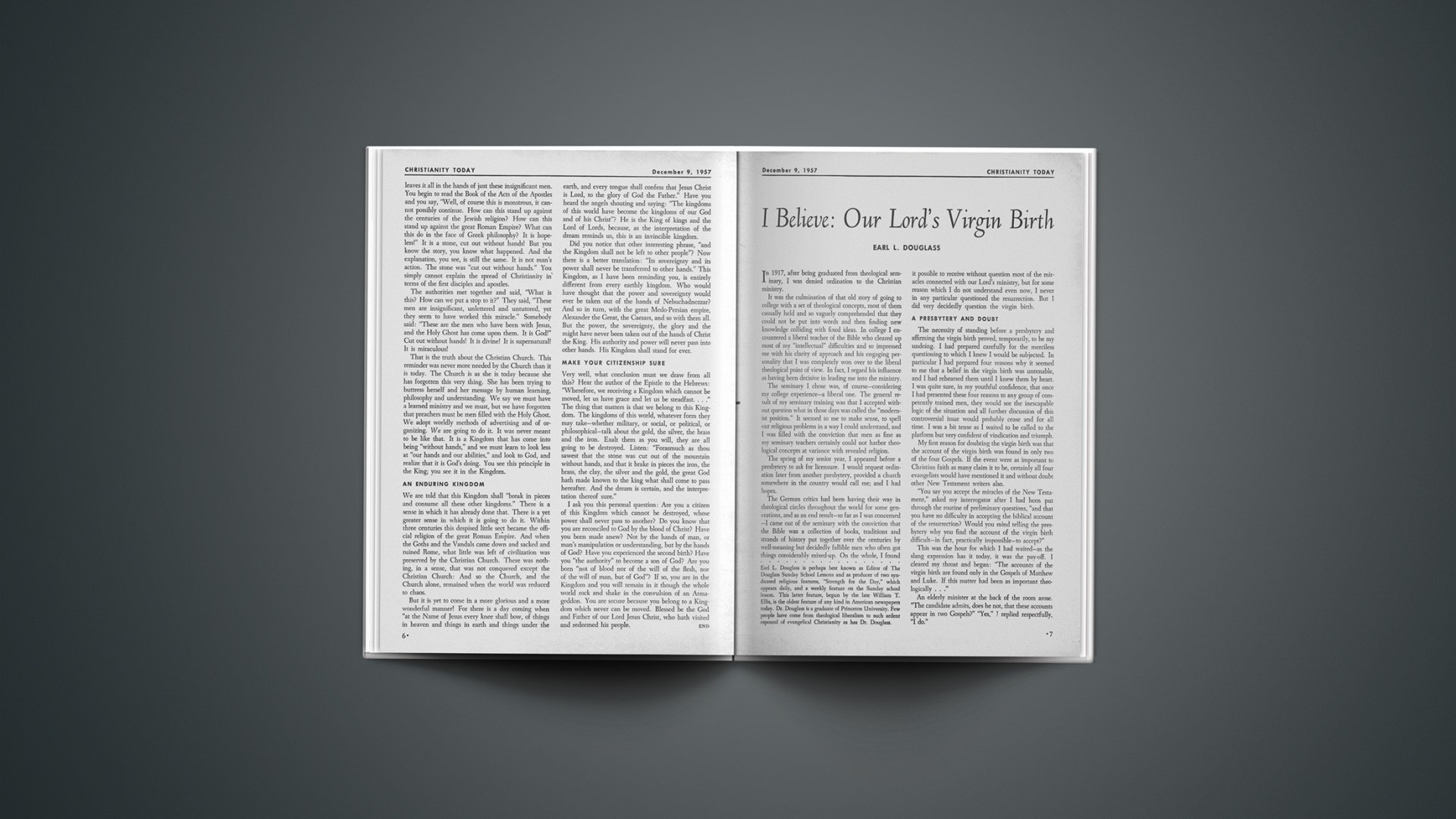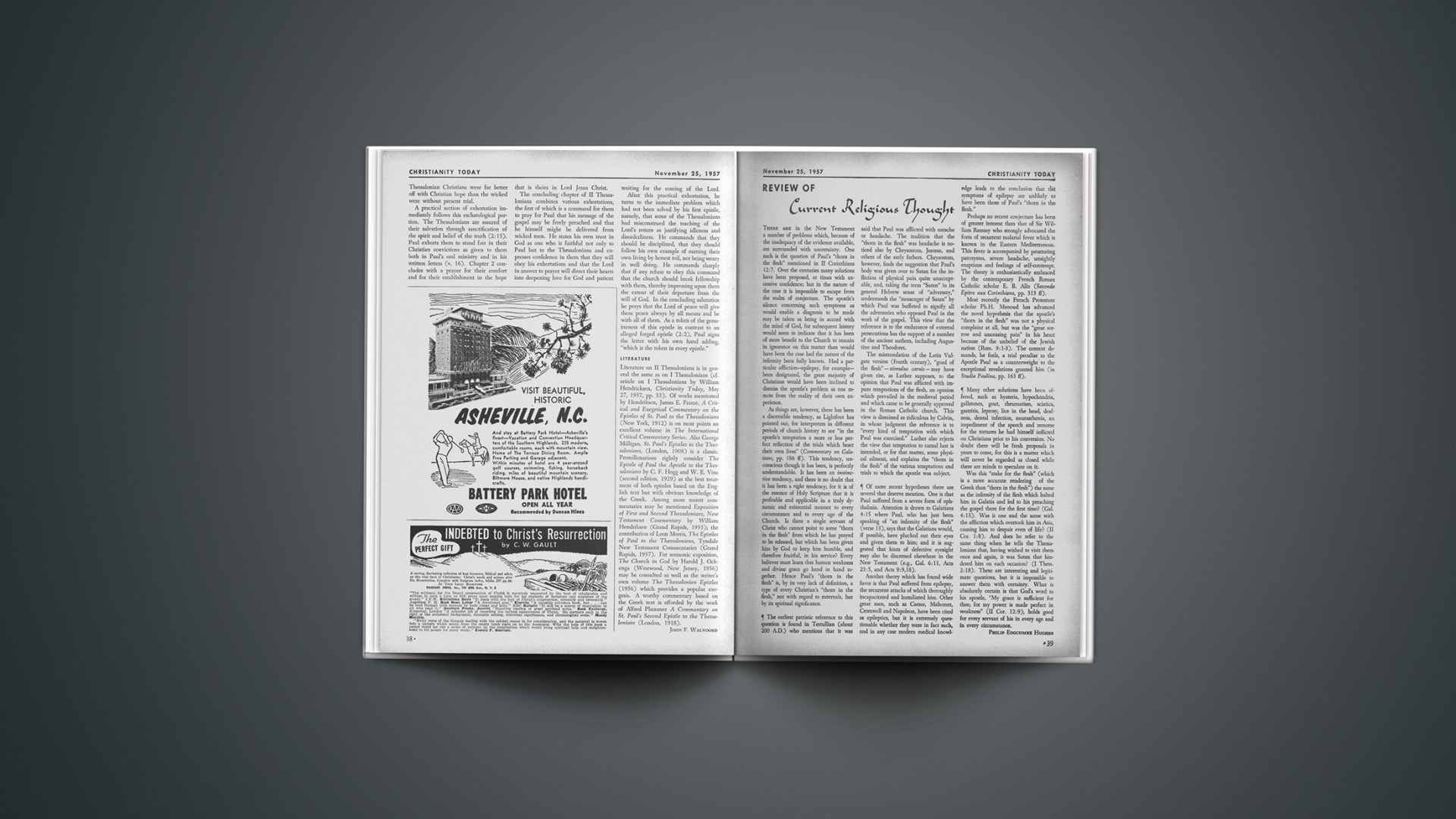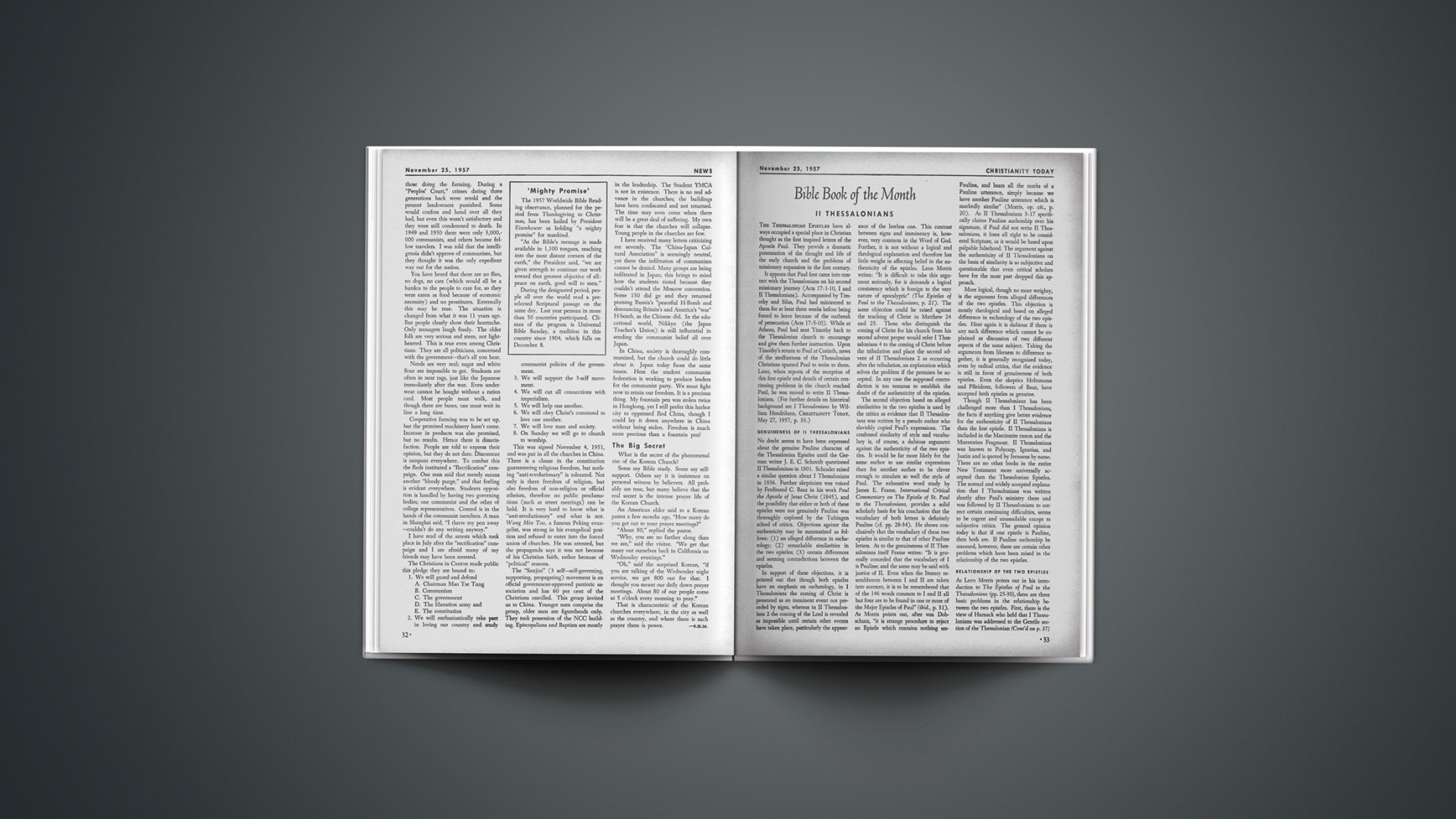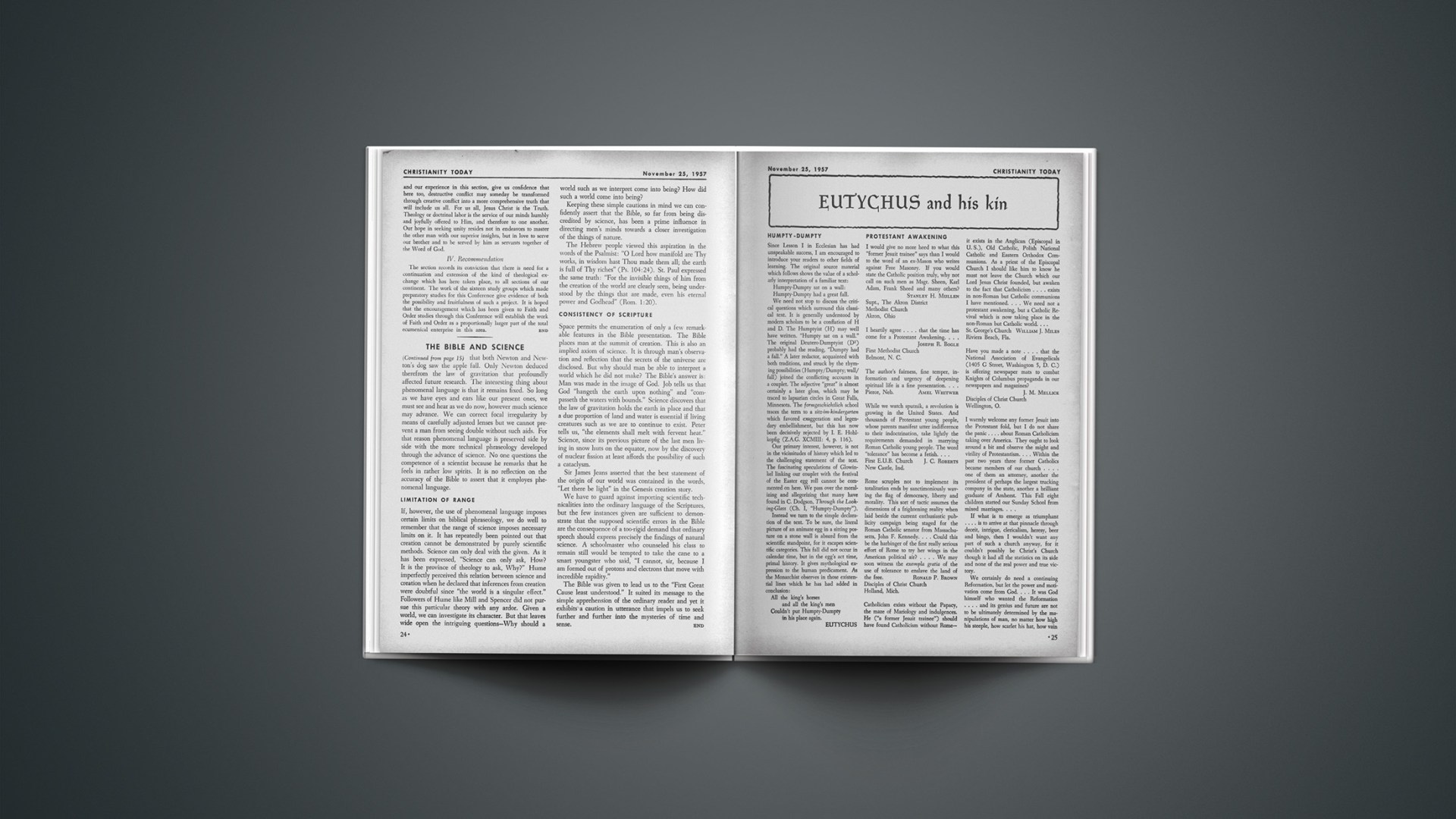As our children grow and mature, our greatest joy, perhaps, is leading them to realize that the Babe of Bethlehem is in reality the Christ of Calvary.
We have always held precious the familiar childhood memories of Christmas, the sparkling tree with all its decorations, the excitement of secrets and surreptitious hiding of gifts. But Christmas to us is far more than these things, and is of infinitely deeper significance than seasonal excitement. And we believe that children who are blessed with Christian homes and listen to the Christmas story and the happy carols can, even at a very early age, learn something of the spiritual significance of it all, namely, a Gift and a Tree that give Christmas its meaning.
The Joys We Know
As Christmas approaches once more, we Christian parents long that our children experience both the fun we knew as children and at the same time the reality of the Christ Child as Saviour and Lord in their lives.
Many years ago something of the true meaning of Christmas dawned upon me as I realized for the first time that the precious baby for whom there was no place at the inn was in truth the eternal Son of God, the Creator of the world. In his Incarnation I came to see that he was but entering the world he had created himself, coming from the living heart of the Father to redeem the people of his own creation.
A Mother’s Responsibility
Now as I have experienced the miracle of bringing precious lives into the world, I am, as a Christian mother, faced with the responsibility as well as the privilege of leading these little hearts to know Christ without whom life is empty and through whom life is abundant and eternal.
All of us are in this world as a result of physical birth; some of us are going to spend an eternity with Christ by reason of spiritual birth. I know little of the shades and implications of theology; but of this I am sure, that at Christmas we shall be celebrating not merely an historical event of two thousand years ago, but a glorious, momentous step in the plan of God’s redemption for sinful man, which culminated at the Cross.
This is the reason we want our children to understand what Christmas means. We want them to enjoy the pleasures of a festive holiday season, but far more do we desire that they grasp, even now, as best they can, the knowledge of him who is Emmanuel, “God with us,” Saviour and Lord. The job is too big for us, we know. But we are aware that “He that spared not his own Son but delivered him up for us all, how shall he not with him freely give us all things?” namely, the wisdom that we need, the understanding and love and grace.
As we pray for our children and think of the things that this world may have in store for them, we know of no better time than Christmas to acknowledge, “For I know whom I have believed, and am persuaded that he is able to keep that which I have committed unto him against that day.”
And we can claim the assurance: “For the promise is to you and to your children.” We have committed them to God and our faith rests implicitly upon his sufficiency.
Ruth Bell Graham, wife of Evangelist Billy Graham, is the devoted mother of four children; another is expected in January. Born in China, she is herself the daughter of missionary parents, Christianity Today’s Executive Editor L. Nelson Bell and Mrs. Bell. Recently she declined nomination for “1957 Mother of the Year” in keeping with her modest spirit.

